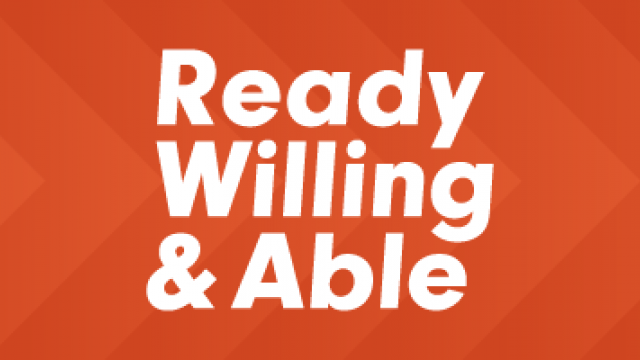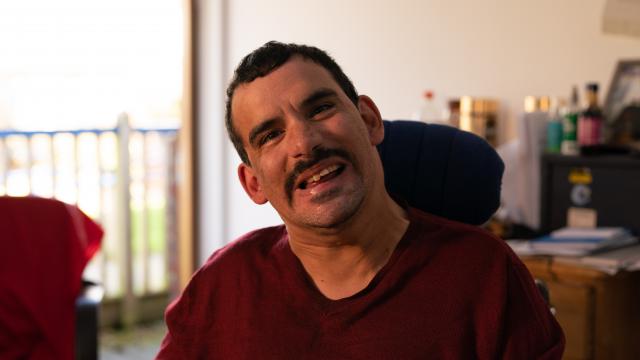
Putting inclusion first
Behind the doors of every good employer is a vibrant and diverse mix of people, who all work together to achieve their goals. They use their different skills and backgrounds to bring fresh ideas and perspectives to everything they do. However, the value that diversity of thought can bring needs to be actively supported within the workplace, because it’s certainly not the case that a diverse workforce is always an inclusive one.
Diversity and inclusion - what's the difference?
Diversity is about the mix, it’s about the wide breadth of difference that is brought by bringing people together from all walks of life, society, cultures, ways of thinking and abilities (including those with disabilities).
Inclusion is the act of making people feel welcome, valued and able to participate in all aspects of society and work, regardless of their differences and no matter how different they are to one another. Inclusion builds on diversity by fostering an environment where people can appreciate each other’s differences and abilities and where those differences are actively seen as ‘adding value’.
Unless employers think of inclusion first, regardless of how much effort is made to create a diverse workplace, that richness of thought and experience will be lost. This is because without a safe and inclusive environment, diversity can lead to issues like discrimination and marginalisation. Those who are perceived to have differing abilities, especially those who have learning disabilities or are autistic, may struggle to achieve their goals and will ultimately seek employment elsewhere.
Inclusion first
Putting inclusion first is about finding ways to make the best of all the people employers already have – and will recruit in the future. It isn’t just having a token representation from specific ‘minority’ groups. It isn’t a focus on metrics and making sure you have some numbers in tick boxes – it’s accepting everyone for who they are, and making all communications, systems and processes accessible.
But, why is this actually important for employers? Because having a truly inclusive team is not only good for employees, but it’s good for business too.
- Better CSR – Being the best at what you do may no longer be enough in a world where reputation comes before product. Workforce inclusivity is a key indicator of an organisation’s social conscience and sets you apart from the others
- Increased commercial value – The spending power of people with disabilities and their families is thought to be around £250bn per year. Having a workforce that’s representative of this wider customer base creates new opportunities, as consumers tend to align with companies that share their values
- Better efficiency and productivity – studies show that having an inclusive workforce leads to better staff morale which in turn can create a more productive and efficient workplace. This workplace too will be rich in ideas and will benefit in greater diversity of thought
How to put inclusion first
There are many ways to put inclusion first, and to achieve the benefits, but you can consider these as a starting point, especially when welcoming people who have learning disabilities or are autistic:
- Inclusive hiring practices – inclusion starts at the very beginning and that means having the right hiring practices. From identifying the vacancy and how jobs are advertised to considering the job requirements and what can be varied to suit the employee’s needs
- Inclusive / accessible communications and information - think about the communication needs of the workforce. Consider your use of easy read materials, language, fonts, formats, braille, text to speech, colours, etc.
- Inclusive environments – is the workplace accessible to all? Does the employee need support to work virtually? Consider introducing quiet or creative spaces and varying work hours to help people get to and from work
- Assistive / accessible technology – thinking about accessibility beyond the legislative guides and being open and supportive of Access to Work and embracing reasonable adjustments
Ultimately being inclusive means embedding practices that don’t marginalise or put people into boxes. It is an enabler to greater things than you can achieve through diversity alone and should be considered first in order to reap the value that a diverse workforce brings.
SeeAbility’s supported employment programme, Ready, Willing and Able, has inclusion at its core. The only requirement for people to access this service is a willingness to participate - there are no barriers, no selection matrix and definitely no tick boxes.
Find out more about how we can help make your workplace more inclusive or get in touch by emailing rwa@seeability.org
Please donate today
Your support this summer will help us to continue breaking down barriers and make inclusion a reality for everyone we support like Emily. And, every penny you give from now until 30 July will be doubled by the Family Building Society up to £2,500, making twice the impact!




